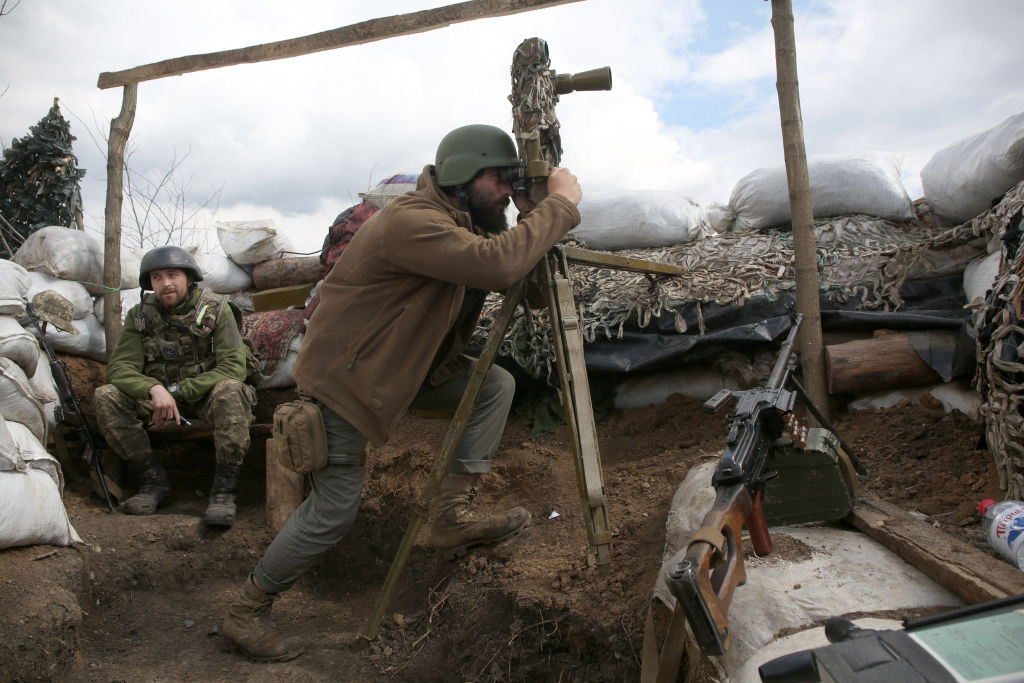What is at stake... therefore, is much more than Ukraine itself or Russia's geopolitical ambitions; it is ultimately about the lessons that China and Iran will take away on what to expect in the future from the US and its NATO allies over Taiwan, the South China Sea, or in the Middle East.
In December, Germany blocked the delivery of anti-drone jamming guns, although Ukraine had already paid for them. The reason reportedly given was, "Such weapons could potentially provoke further military escalation on the demarcation line (between Russian and Ukrainian forces) and lead to larger clashes." Such arguments have reportedly been used by Germany for years with regard to weapons sales to Ukraine, which also sought, in vain, to convince former Chancellor Angela Merkel to change Germany's policy on the issue.
German foreign minister Annalena Baerbock recently said that the government's restrictive arms export policy is "rooted in our history" and that "diplomacy is the only way."
Germany's "history," however, did not stop its arms exports from reaching record levels in 2021 with exports worth 9.35 billion euros ($10.65 billion) last year, an increase of 61% compared to 2020.
The degree to which the largest EU states have any resolve left to take responsibility for their own security environment in the face of one of the most dangerous security crises on European soil so far this century is one thing that this crisis continues to reveal. Thus far, Europe appears, once again, to be failing spectacularly.

Tensions continue to mount in Europe over Russia's continued build-up of troops on the border with Ukraine. What is at stake is much more than Ukraine itself or Russia's geopolitical ambitions; it is ultimately about the lessons that China and Iran will take away on what to expect in the future from the US and its NATO allies over Taiwan, the South China Sea, or in the Middle East. Pictured: A Ukrainian soldier observes Russia-backed separatists through a periscope at a position near Donetsk, on April 22, 2021. (Photo by Anatolii Stepanov/AFP via Getty Images)
Tensions continue to mount in Europe over Russia's continued build-up of troops on the border with Ukraine. Russia, according to the latest assessment of the Ukrainian Defense Ministry, now has more than 127,000 troops in the region. That is in addition to the estimated 35,000 Russia-backed separatists in Ukraine's eastern region of Donbass. Additionally, Russian troops have begun to arrive in Belarus for joint military drills and war games, named Allied Resolve, intended to rehearse "repelling external aggression" according to Russian Deputy Defense Minister Alexander Fomin.
Continue Reading Article
No comments:
Post a Comment